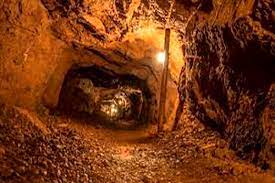A tunnel built in a gold mine in Mali, one of the poorest countries in the world, caved in, 70 people died.

More than 70 people have been killed after a tunnel collapsed at a gold mining site in the African country Mali. This accident happened last week, the government confirmed this in the local media on Wednesday. The search for many people missing after the accident is still going on. In such a situation, there is a possibility of the death toll increasing further. This is the biggest mining accident in recent times in Mali. Mali is counted among the areas prone to mining accidents. Mali, one of the world’s poorest countries, is one of Africa’s leading gold producers. Such incidents happen frequently in gold mining sites in Mali.
“There was a sudden noise and the ground started shaking, then we found that the mines had caved in,” Omar Sidibé, an official at a gold mine in the south-western city of Kangaba, told AFP on Friday about the accident. There were more than 200 gold mines where the accident occurred. The search is now over. We have found 70 bodies. The Ministry of Mining and Government of Mali expressed its deepest condolences to the families of those who lost their lives and to the Malian people. The Government of Mali has called on communities living near mining sites and gold miners to follow safety guidelines and work only within gold mine perimeters.
Foreign companies extract gold in Mali
Mali’s mining sector is dominated by foreign groups such as Canada’s Barrick Gold, Australia’s Resolute Mining and Britain’s Hummingbird Resources, which have operated despite political instability in the country for years. Among these foreign companies, work continues in the mines at the local level and thousands of people work in these mines. Gold mining is a dangerous business in many areas, especially the Sahel region. Human rights organizations regularly condemn child labor and safety practices in artisanal mining operations.
According to a report published in 2019 by the International Organization for Migration (IOM), living and working conditions have become dangerous due to the continuous influx of new gold panning workers and the lack of infrastructure to support them. The report said that work is done in these mines away from the urban center. In such a situation, in case of illness or accident, it is difficult to get treatment given the distance to the hospital and the condition of the roads.







